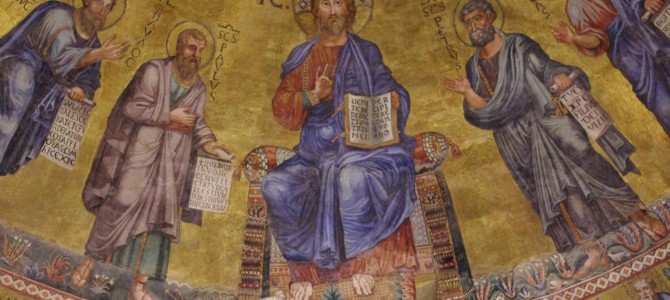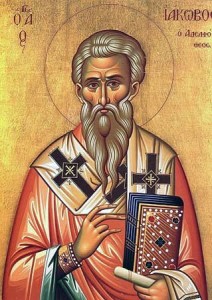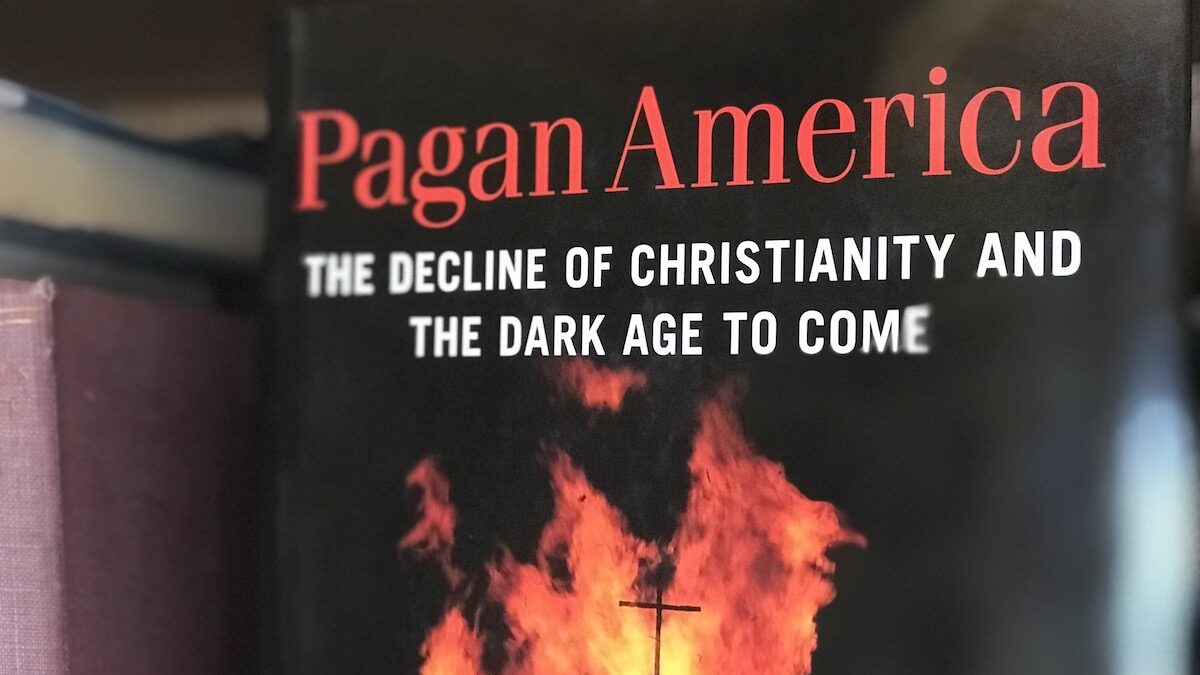
Joel Osteen, pastor of Lakewood Church in Houston, Texas, has written numerous bestsellers encouraging people to “live at [their] full potential” and offering a method of spiritual disciplines guaranteed to open the floodgates of God’s blessings. Countless believers throughout the world have employed these disciplines and reaped the benefits, living lives of abundant happiness without the burdens of sickness, poverty, sorrow, or suffering. But some celebrity preachers have bucked the Osteen trend and opted to embrace rejection and hardship now to live their best lives later. Here are a few notable examples.

1. Saint James
While under Jesus’ tutelage, James developed a reputation for his fire and brimstone style of preaching. When his growing fame gained the attention of King Herod after the death and resurrection of Jesus, James had a great chance to flash Herod a friendly smile and tell him “God will not allow any person to keep you from your destiny.” However, James appears to have kept the focus on sin and forgiveness, causing Herod to say, “God will not allow any person to keep my sword from your belly.”
Although his reputation is forever stained by this perfectly avoidable death, James is currently gathered around the throne of God and the Lamb, forever singing the praises of the One who called him out of the darkness and into the marvelous light.

2. Saint Stephen
After spending much of his life living in the shadow of the more established of Christ’s disciples, Stephen finally stepped into the spotlight in Acts 7. But when presented with a great opportunity to show the Sanhedrin that “just because something didn’t work out your way, that does not change who you are,” Stephen chose to call them to repentance and preach that Jesus was now at the right hand of God.
On the downside, the lack of relevance in Stephen’s sermon did cause the crowds to throw rocks at his face, head, and body until he was dead. But, on the upside, Stephen is now regularly enjoying the eternal and inextinguishable love and mercy and favor and peace and forgiveness and triumph and victory and salvation and kingdom and power and glory of God.

3. Saint Peter
Scholars have long suspected that Saint Peter was secretly a devout practitioner of Osteen’s methodologies, particularly those espoused in Osteen’s book, “I Declare,” which teaches Christians they can obtain blessings and ward off his curses through positive affirmations. Rumors persist that Peter was known to say on a daily basis, “I declare that I will not be crucified like Jesus was.” Perhaps due to his lack of formal theological training, Peter neglected to cover his bases by praying, “Oh, also, I won’t be crucified upside down, either.” He was crucified upside down.
Despite this career misstep, Peter now gathers with the saints who have come out the great tribulation and regularly washes his robe and makes it white in the blood of the Lamb.

4. Saint Paul
Osteen has said, “There’s a belief that you’re supposed to be poor, and suffering, and show humility. I just don’t see the Bible that way. I see that God came and Jesus died so that we might live an abundant life and be a blessing to others.” Strangely, Saint Paul ran in the opposite direction of these words, actually boasting that his poverty, suffering, and humiliation were signs of God’s blessings.
For those of us who clearly see that Jesus died so that we could pay it forward at Starbucks while playing Madden on our smartphones, it’s difficult to comprehend how Paul could have gotten things so wrong. But, on an unrelated note, Saint Paul is currently enjoying the paradise where the wolf and the lamb dwell together, where the lion eats straw like the ox, where dust is the serpent’s food, and where nothing can hurt or destroy in all God’s holy mountain.

5. Jesus
“Who has believed what he has heard from us?
And to whom has the arm of the Lord been revealed?
2 For he grew up before him like a young plant,
and like a root out of dry ground;
he had no form or majesty that we should look at him,
and no beauty that we should desire him.
3 He was despised and rejected by men;
a man of sorrows, and acquainted with grief;
and as one from whom men hide their faces
he was despised, and we esteemed him not.
4 Surely he has borne our griefs
and carried our sorrows;
yet we esteemed him stricken,
smitten by God, and afflicted.
5 But he was pierced for our transgressions;
he was crushed for our iniquities;
upon him was the chastisement that brought us peace,
and with his wounds we are healed.
6 All we like sheep have gone astray;
we have turned—every one—to his own way;
and the Lord has laid on him
the iniquity of us all.
7 He was oppressed, and he was afflicted,
yet he opened not his mouth;
like a lamb that is led to the slaughter,
and like a sheep that before its shearers is silent,
so he opened not his mouth.
8 By oppression and judgment he was taken away;
and as for his generation, who considered
that he was cut off out of the land of the living,
stricken for the transgression of my people?
9 And they made his grave with the wicked
and with a rich man in his death,
although he had done no violence,
and there was no deceit in his mouth.
10 Yet it was the will of the Lord to crush him;
he has put him to grief;
when his soul makes an offering for guilt,
he shall see his offspring; he shall prolong his days;
the will of the Lord shall prosper in his hand.
11 Out of the anguish of his soul he shall see and be satisfied;
by his knowledge shall the righteous one, my servant,
make many to be accounted righteous,
and he shall bear their iniquities.
12 Therefore I will divide him a portion with the many,
and he shall divide the spoil with the strong,
because he poured out his soul to death
and was numbered with the transgressors;
yet he bore the sin of many,
and makes intercession for the transgressors.”
—Isaiah 53.









